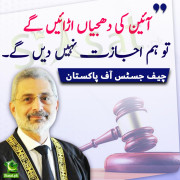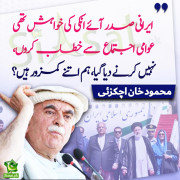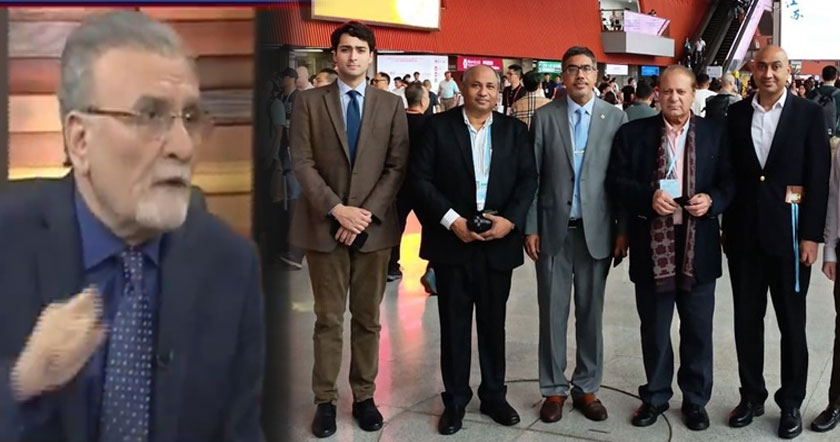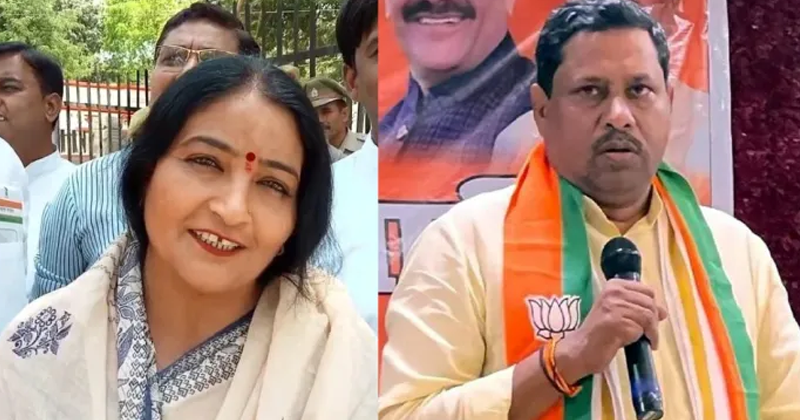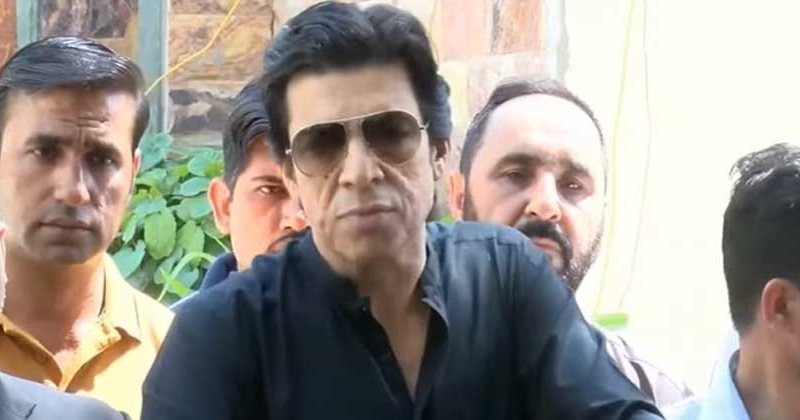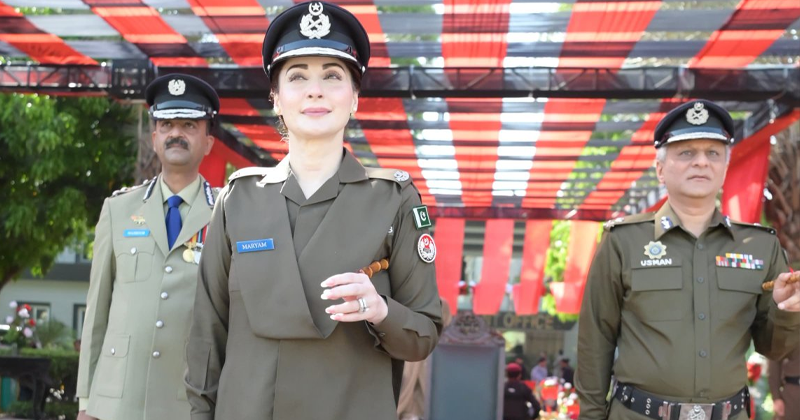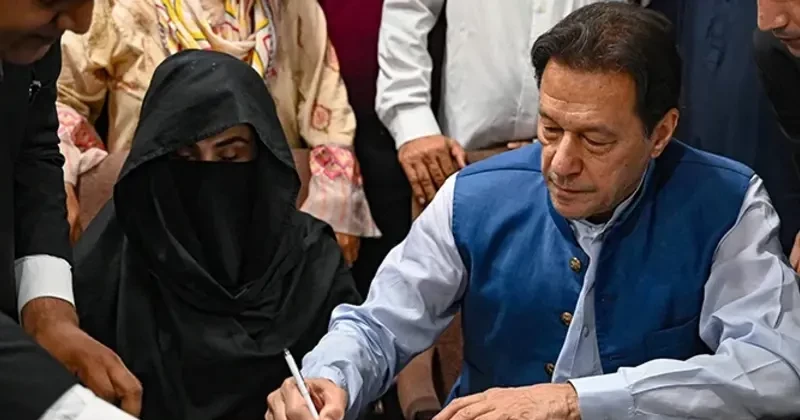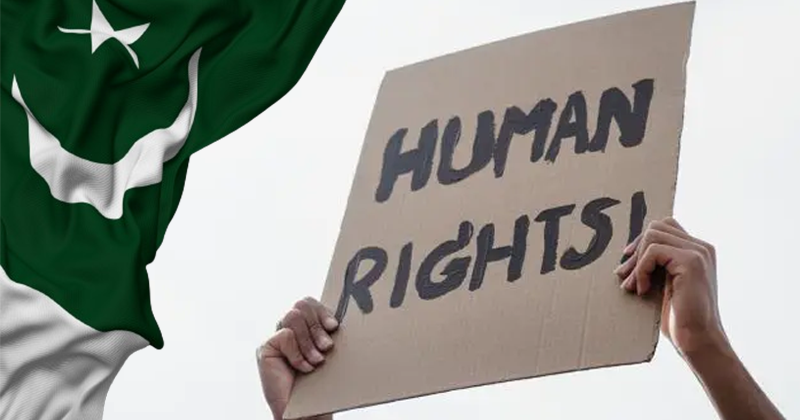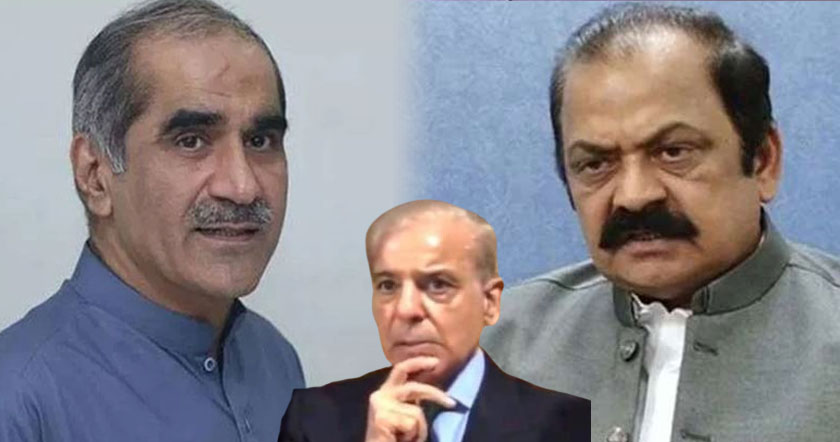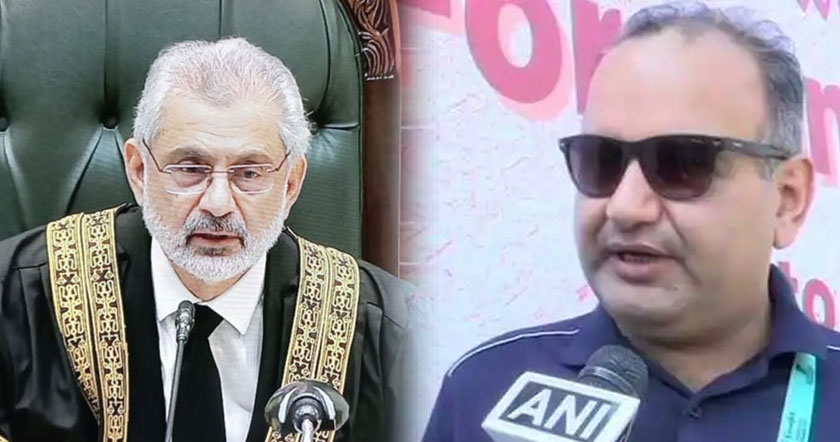July 28, 2013 - Updated 1244 PKT
From Web Edition

PESHAWAR: Groups of Taliban fighters are spilling out of the tribal belt in northwestern Pakistan into the regions largest city, Peshawar, where they are increasingly showing their presence through a campaign of intimidation and violence, according to residents, the police and city officials.
While Taliban violence has declined across Khyber-Pakhtunkhwa Province this year, officials say, raids have increased in Peshawar, where militants have stepped up attacks aimed at the police, extortion demands, sectarian killings and kidnappings, said a report published in the New York Times.
For all that, the militants do not pose an immediate threat to the overall control of the city, and the police say they have foiled many potential attacks. But the increased Taliban presence does signal a further advance for the militants, who have also become a more muscular presence this year in Karachi, the countrys most populous city.
Their strength has also bolstered a broader wave of sectarian violence in the northwest. On Saturday, the toll from a double bomb attack conducted on Friday against minority Shia in Parachinar, a tribal town west of Peshawar, climbed to 57 dead and at least 167 wounded, the authorities said. There was no claim of responsibility, but Taliban-affiliated groups have been responsible for previous sectarian atrocities in the same area.
Militants have attacked inside Peshawar, a city of an estimated four million people, once a day, on average, for the past five months, according to provincial government statistics. That accounts for about half of the militant episodes across Khyber-Pakhtunkhwa.
Its like Ricky Ponting playing cricket, said a senior security official in Peshawar, referring to a former Australian cricketer known for his prolific scoring ability, and speaking on the customary condition of anonymity.
The violence is partly a product of military success. The Pakistani Army has been battling Taliban militants in the mountains of the adjoining Khyber tribal district in recent months. A smaller security operation is under way in Darra Adam Khel, a district southwest of the city that is famed for its gunsmiths.
The fiercest fighting is taking place in the Tirah Valley of Khyber, along the Afghan border, where the military is arrayed against Mangal Bagh, a local warlord affiliated with the Pakistani Taliban.
Helicopter gunships and artillery attacked militant hideouts in Khyber as part of an intense, weeklong military assault that ended Thursday. Tribal authorities in Khyber said they found the bodies of 20 militants in one village alone.
But the back draft of those battles is being felt in the suburbs of Peshawar, where nervous residents have reported sightings of militants who travel around on motorcycles, frequent restaurants late at night and preach in local mosques.
Abdul Haleem, a building contractor, said he received a surprise lecture on violence during morning prayers at his local mosque recently. A man stood up and, without the permission of the imam, started preaching about the importance of jihad and its rewards in the hereafter, Mr. Haleem said during an interview at his house in Hayatabad, the citys wealthiest suburb.
Later we found out that he was a militant commander from Khyber, he said.
Several police officers, all speaking on the condition of anonymity blamed the ambivalent attitude of the newly elected provincial government, led by Imran Khan, a former cricket star, for declining morale.
Mr. Khans Tehreek-e-Insaf party favors talks with the Taliban over fighting, and his officials frequently frame militant violence as a reaction to American drone strikes in the tribal belt.
What we need is a pat on the back, not daily derision, one senior official said. If Khan says this is not our war, then what does he think we are doing here sacrificing our lives?
Murad Saeed, a member of Parliament from Mr. Khans party, rejected accusations that his party was soft on militancy. We only say that the use of force has been futile against militancy, and now we should give a chance to a political solution, Mr. Saeed said in a telephone interview.
He said Pakistans government first needed to address the factors that spur our own people to carry out violent acts.
Some of the violence in Peshawar this year has targeted members of the Shia minority, and doctors in particular. In January, Dr. Shah Nawaz Ali, an eye specialist at Lady Reading Hospital, was shot dead outside his clinic, and another doctor in Peshawar, Dr. Riaz Hussain Shah, a gastroenterologist, was killed.
Wealthy businessmen have faced extortion demands. The owner of a truck transport company living in Hayatabad said a militant demand for about $100,000 came to him in the form of a letter thrown at his doorstep. The next day a Taliban commander phoned him. He warned me not to inform the police, said the businessman, who spoke on the condition of anonymity for safety reasons. I have no option but to meet their demand.
The provincial police chief, Ihsan Ghani, acknowledged that the situation was grave, but he insisted that it was under control. There is a clear and present danger, Mr. Ghani said in an interview. But, he added, police intelligence had quietly disrupted several terrorist plots, and the authorities had arrested many militants.
The turmoil comes against the backdrop of a broader political stasis in Pakistan. The prospect of peace talks with the Taliban in neighboring Afghanistan has evoked mixed reactions among Pakistani politicians.
Some, like Mr. Khan, view such talks as a necessary first step out of a violent regional quagmire, a move that would at once bring peace to Afghanistan and remove the justification that spurs Pakistans militants.
But others view the notion of talks with apprehension, fearing that they would only give the Taliban time to conquer ground that would eventually have to be won back through painful military operations, as the army did in the Swat Valley in 2009.
We have yet to decide who is our real enemy, and the Taliban are taking advantage of this confusion, said Afrasiab Khattak of the Awami National Party, which governed Khyber-Pakhtunkhwa until the last election, when it won just one seat.
Some Pakistani officials worry that the American withdrawal in Afghanistan in 2014 will embolden Pakistans Taliban. A recent strategic assessment by the provinces Home and Tribal Affairs Department, a copy of which has been obtained by The New York Times, warns that it is a fallacy to assume that the American departure from Afghanistan will end violence in Pakistan.
Instead, the document warns, Pakistans Taliban could use the perceived victory in Afghanistan to install their own brand of Islam in Pakistan.
Our political leadership is confused when it comes to the Taliban, said one senior police officer in Peshawar. And that is undermining police morale and hindering us in our job.
http://www.thenews.com.pk/article-111367-PTI-attitude-helping-Taliban-gain-foothold-in-Peshawar
From Web Edition

PESHAWAR: Groups of Taliban fighters are spilling out of the tribal belt in northwestern Pakistan into the regions largest city, Peshawar, where they are increasingly showing their presence through a campaign of intimidation and violence, according to residents, the police and city officials.
While Taliban violence has declined across Khyber-Pakhtunkhwa Province this year, officials say, raids have increased in Peshawar, where militants have stepped up attacks aimed at the police, extortion demands, sectarian killings and kidnappings, said a report published in the New York Times.
For all that, the militants do not pose an immediate threat to the overall control of the city, and the police say they have foiled many potential attacks. But the increased Taliban presence does signal a further advance for the militants, who have also become a more muscular presence this year in Karachi, the countrys most populous city.
Their strength has also bolstered a broader wave of sectarian violence in the northwest. On Saturday, the toll from a double bomb attack conducted on Friday against minority Shia in Parachinar, a tribal town west of Peshawar, climbed to 57 dead and at least 167 wounded, the authorities said. There was no claim of responsibility, but Taliban-affiliated groups have been responsible for previous sectarian atrocities in the same area.
Militants have attacked inside Peshawar, a city of an estimated four million people, once a day, on average, for the past five months, according to provincial government statistics. That accounts for about half of the militant episodes across Khyber-Pakhtunkhwa.
Its like Ricky Ponting playing cricket, said a senior security official in Peshawar, referring to a former Australian cricketer known for his prolific scoring ability, and speaking on the customary condition of anonymity.
The violence is partly a product of military success. The Pakistani Army has been battling Taliban militants in the mountains of the adjoining Khyber tribal district in recent months. A smaller security operation is under way in Darra Adam Khel, a district southwest of the city that is famed for its gunsmiths.
The fiercest fighting is taking place in the Tirah Valley of Khyber, along the Afghan border, where the military is arrayed against Mangal Bagh, a local warlord affiliated with the Pakistani Taliban.
Helicopter gunships and artillery attacked militant hideouts in Khyber as part of an intense, weeklong military assault that ended Thursday. Tribal authorities in Khyber said they found the bodies of 20 militants in one village alone.
But the back draft of those battles is being felt in the suburbs of Peshawar, where nervous residents have reported sightings of militants who travel around on motorcycles, frequent restaurants late at night and preach in local mosques.
Abdul Haleem, a building contractor, said he received a surprise lecture on violence during morning prayers at his local mosque recently. A man stood up and, without the permission of the imam, started preaching about the importance of jihad and its rewards in the hereafter, Mr. Haleem said during an interview at his house in Hayatabad, the citys wealthiest suburb.
Later we found out that he was a militant commander from Khyber, he said.
Several police officers, all speaking on the condition of anonymity blamed the ambivalent attitude of the newly elected provincial government, led by Imran Khan, a former cricket star, for declining morale.
Mr. Khans Tehreek-e-Insaf party favors talks with the Taliban over fighting, and his officials frequently frame militant violence as a reaction to American drone strikes in the tribal belt.
What we need is a pat on the back, not daily derision, one senior official said. If Khan says this is not our war, then what does he think we are doing here sacrificing our lives?
Murad Saeed, a member of Parliament from Mr. Khans party, rejected accusations that his party was soft on militancy. We only say that the use of force has been futile against militancy, and now we should give a chance to a political solution, Mr. Saeed said in a telephone interview.
He said Pakistans government first needed to address the factors that spur our own people to carry out violent acts.
Some of the violence in Peshawar this year has targeted members of the Shia minority, and doctors in particular. In January, Dr. Shah Nawaz Ali, an eye specialist at Lady Reading Hospital, was shot dead outside his clinic, and another doctor in Peshawar, Dr. Riaz Hussain Shah, a gastroenterologist, was killed.
Wealthy businessmen have faced extortion demands. The owner of a truck transport company living in Hayatabad said a militant demand for about $100,000 came to him in the form of a letter thrown at his doorstep. The next day a Taliban commander phoned him. He warned me not to inform the police, said the businessman, who spoke on the condition of anonymity for safety reasons. I have no option but to meet their demand.
The provincial police chief, Ihsan Ghani, acknowledged that the situation was grave, but he insisted that it was under control. There is a clear and present danger, Mr. Ghani said in an interview. But, he added, police intelligence had quietly disrupted several terrorist plots, and the authorities had arrested many militants.
The turmoil comes against the backdrop of a broader political stasis in Pakistan. The prospect of peace talks with the Taliban in neighboring Afghanistan has evoked mixed reactions among Pakistani politicians.
Some, like Mr. Khan, view such talks as a necessary first step out of a violent regional quagmire, a move that would at once bring peace to Afghanistan and remove the justification that spurs Pakistans militants.
But others view the notion of talks with apprehension, fearing that they would only give the Taliban time to conquer ground that would eventually have to be won back through painful military operations, as the army did in the Swat Valley in 2009.
We have yet to decide who is our real enemy, and the Taliban are taking advantage of this confusion, said Afrasiab Khattak of the Awami National Party, which governed Khyber-Pakhtunkhwa until the last election, when it won just one seat.
Some Pakistani officials worry that the American withdrawal in Afghanistan in 2014 will embolden Pakistans Taliban. A recent strategic assessment by the provinces Home and Tribal Affairs Department, a copy of which has been obtained by The New York Times, warns that it is a fallacy to assume that the American departure from Afghanistan will end violence in Pakistan.
Instead, the document warns, Pakistans Taliban could use the perceived victory in Afghanistan to install their own brand of Islam in Pakistan.
Our political leadership is confused when it comes to the Taliban, said one senior police officer in Peshawar. And that is undermining police morale and hindering us in our job.
http://www.thenews.com.pk/article-111367-PTI-attitude-helping-Taliban-gain-foothold-in-Peshawar





